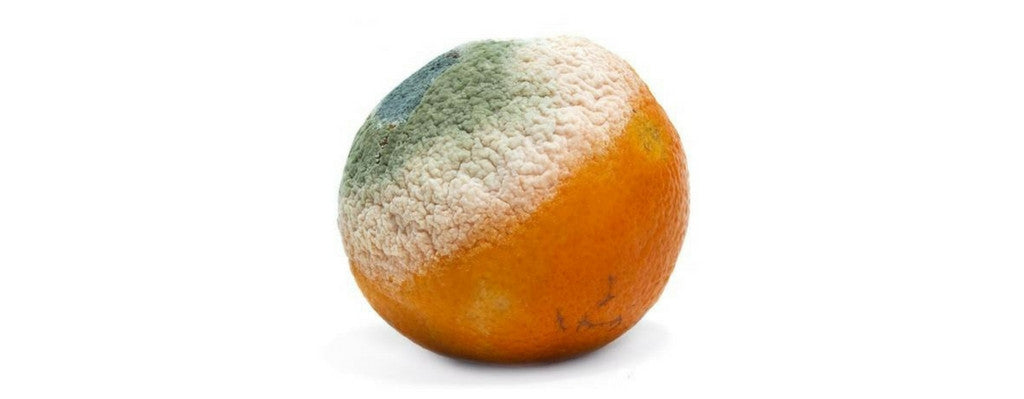
Carbs will make you fat. Carbs create an unsustainable crash-and-bust energy cycle. Carbs will burn out your metabolism.
I've written at length about these issues that come when carbs are your primary fuel source. I'm a firm believer that the human body is designed to run primarily off of high-quality fats, another topic I've covered a few times. Still, I don't want to give the impression that I'm completely anti-carb. Just as valid of an opening to the article could have been:
Carbs are essential for a number of metabolic processes. Carbs are an efficient fuel source for the body. Strategic carb consumption is essential for optimal health.
What I'm getting at here is that it is important to know differences between carb sources, how they affect your body and which are the best choices when eating carbohydrates.
A High-Quality Carbohydrate Source Should Be:
- Low Glycemic Index (read more here)
- Free Of Toxins (read more here)
- Low In Fructose (or carbs that break down into fructose)
- Nutrient-Rich
- Anti-Inflammatory (or at least not pro-inflammatory)
Synchro-Approved Carbohydrate Sources (in order of 'Synchro-ness')
- Leafy Green Vegetables (Kale, Chard, Spinach)
- Sweet Potatoes
- White/Brown Rice
- Squashes
- Tapioca And Taro Root
- Other Potatoes
- Plantains
- Coconut Palm Nectar (a minimally-processed sugar we use in Synchro Genesis)
- Brown Rice Syrup
- Maple Syrup (Grade B is best)
Carbohydrate Sources To AVOID (worst at the top)
- Wheat! (not just gluten, mycotoxins! ...read more here)
- Corn! (same reasons as wheat)
- Oats
- High-Fructose Corn Syrup
- Agave Nectar
Carbohydrates To Eat SPARINGLY (best at the top)
- Low-Glycemic Fruits (plums, apples, prunes, berries, grapefruit, cherries)
- Quinoa (great nutritional content, but low-levels of natural plant toxins are a non-issue for occasional consumption, but can accumulate if eaten several times a week)
- Other Grains (Buckwheat, Amaranth)
- Medium-Glycemic Fruits (bananas, mango, papaya, peaches)
- High-Glycemic Fruits (watermelon, dates, pineapple)
- Cane Sugar
The Problem With Fructose (And Fruits)
High-Fructose, Low-Nutrient
You may be curious why fruits made it into the "eat sparingly" section. We were brought up thinking that fruits were healthy, right? Unfortunately, this really doesn't hold true. Once upon a time fruits were decent sources of vitamins and minerals. Today, like most of our produce, fruits are grown in depleted soils. Farmers are still able to grow fruit that looks and tastes good in these bad soils, but these fruits don't deliver us valuable minerals, vitamins and phytonutrients like fruits grown in the wild would. Buying organic generally doesn't do much to help this lack of nutrients.
Negative Impacts Of Fructose In The Body
Even if our fruits were delivering meaningful levels of nutrients, I still wouldn't consider them healthy. If we're being honest, fruits are essentially just glorified natural high-fructose candy. High-fructose corn syrup has been thoroughly vilified in the media, and for good reason. Yet, fructose-rich fruits have escaped criticism. Fructose is a simple sugar with almost no use in the body. While glucose (the other primary simple sugar) is absorbed by the digestive system and can be used by the body for energy, most fructose is not absorbed and is instead sent straight to the liver for processing. In the liver, fructose goes through conversion into glucose or (more frequently), fructose is stored (often as fat). Shouldn't it tell us something that the first thing our body does with fructose is convert it to something else?
Fructose has several other negative impacts on the body and metabolism. Fructose is a reactive molecule that binds with proteins in the body to form Advanced Glycation End Products (AGEs). AGEs cause cross-linking in collagen, the body's primary connective tissue. Cross-linking reduces the flexibility of collagen, creating a number of issues including stiff joints, damaged DNA and aging skin. Glucose also comes with this issue, but it is seven times less likely to bind to proteins, making it a much safer sugar.
Fructose has also been correlated with insulin resistance (pre-diabetes), elevated triglycerides and even decreased brain function. It's worth noting that most of the issues with fructose come with reqular moderate-to-high levels of fruit consumption, so an occasional piece of fruit realistically won't do you any more harm than any other sugar-filled treat. But there-in lies the real point: fruit should be thought of in the same category as candy and other sweets, and *not* as something health-promoting.
Stay Synchro,
Graham Ryan


Looking For More On Choosing The Best Foods?
Ranking The Best (And Worst) Protein Sources...and The Inevitable "Meat Question"
Why Chocolate Is The World's Greatest Food
Get Rid Of Chronic Inflammation (and pain) With Turmeric
